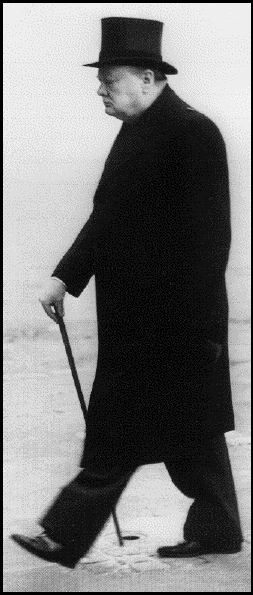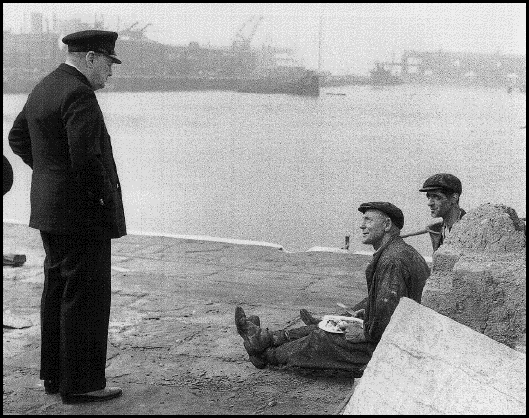The Unexpected Hero
Paul Addison
(Oxford)

But the war, while wreaking havoc on most of Europe, made Churchill into a spectacular hero, a star in the very movie he had helped invent, and in which he played a leading character.
Early on, he got appointed First Lord of the Admiralty. He was rumored to have said, "What are the traditions of the Navy? Rum, sodomy, and the lash?" (In later years he explained that he had never said this but wished he had.) During WWII when people were asked about him, the praise was almost unanimous, but there were a few dissenters who called him "a bugger," "fat," "dictatorial," and "a rotter." Another said, cryptically, that he was a "bath-brick."
All his life, Churchill saw war "as an engine of progress." As we know, he loathed Stalin, at least until 1940. After WWII, when Russia refused to budge from Poland, Churchill tried to convince Harry Truman to drop a series atomic bombs on major soviet cities.
His opinion of other cultures - - - like that of most of his fellow English upper class members - - - was astonishing. In 1931 Churchill said of Gandhi, "he is a seditious Middle Temple lawyer, now posing as a fakir of a type well-known in the East, striding half-naked up the steps of the Viceregal Palace . . . to parley on equal terms with a representative of the King-Emperor."
Churchill is, in its understated way, nicely witty, and very English - - - to the point that there are some things crop up that make no sense whatsoever to those of us living somewhere over there to the west of Brighton Rock . . . above and presumably beyond the bath-bricks.
But one does become quite fond of the old bugger as he is presented in Churchill despite his prejudices, his pig-headedness, and possibly for the fact that he was able to conduct a war while indulging in astonishing abilities to consume booze. Harry Hopkins found Churchill enjoying a bottle of wine for breakfast in 1943 and was told by him that he "had a profound distaste on the one hand for skimmed milk, and no deep-rooted prejudice about wine, and that he had recounciled the conflict in favor of the latter."
And when meeting with King Ibn Saud, being told that the King would not allow strong drink, Churchill said that he understood the King's religion, but "my religion prescribed an absolute sacred rite smoking cigars and drinking alcohol before, after, and if need be during all meals and the intervals between them."
